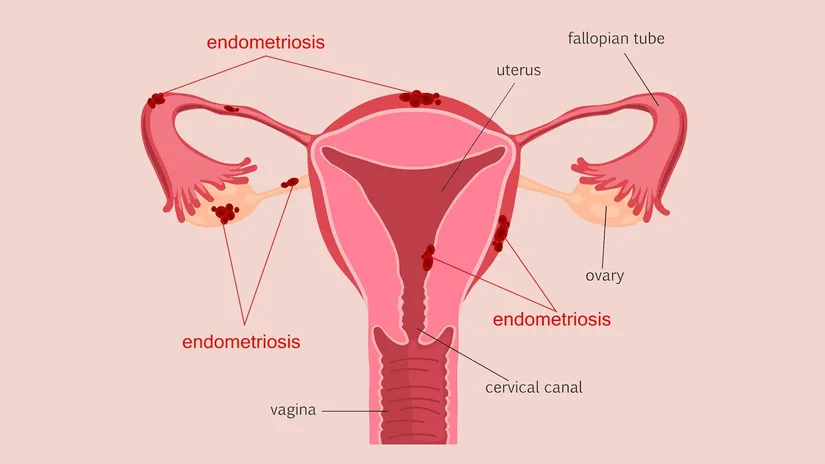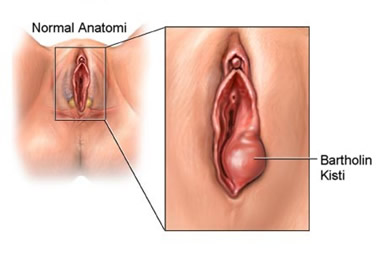Toplumda çikolata kisti adı ile de bilinen endometriozis, rahim içinde bulunan ve endometrium adı verilen dokunun başka dokulara yerleşmesi rahatsızlığıdır. Kronik bir hastalık olan endometriozis rahim içini döşeyen endometrium tabakasının rahim dışında farklı bir bölgede büyümesi sonucu gelişir. Genellikle ağrılı seyreden endometriozis en sık olarak yumurtalıklar, fallop tüpleri ve pelvisi örten dokuda gözlenmektedir.
Endometriozis Nedenleri Nelerdir?
Her yaştan kadını etkileyebilen ancak en çok 30’lu ve 40’lı yaşlarda gözlenen endometriozis hastalığına sebep olan faktörler tam olarak bilinmese de sebebe yönelik geliştirilen bazı teoriler mevcuttur. Genetik faktörler, ters yöne menstrüasyon olması, bağışıklık sistemi ile ilgili problemler, kan dolaşımı veya lenfatik sistem yoluyla endometrium hücrelerinin vücudun çeşitli yerlerine yayılması ve çeşitli organlara yerleşmesi gibi faktörlerin bu hastalığa sebep olabileceği düşünülmektedir.
Endometriozis Belirtileri Nelerdir?
- Ağrılı adet dönemi ( Dismenore ) : Bir kaç gün devam ağrılar pelvik ağrı ve kramp şeklinde hissedilmektedir. Genellikle adet kanaması öncesinde başlayan ağrılar bel ve karın bölgesinde de gözlenebilir.
- Cinsel ilişki sırasında ağrı : Cinsel ilişki sırasında ya da sonrasında pelvik bölgede ağrı hissedilebilir.
- Dışkılama ya da idrara çıkma sırasında ağrı : Genellikle adet dönemlerinde belirgin olan bu belirtide dışkılama ya da idrar yapma sırasında ağrı şikayeti görülebilir.
- Anormal kanama: Adet döneminde aşırı kanama ya da dönemler arasında anormal kanama gözlenebilir.
- İnfertilite : Endometriozis karın içerisinde yapışıklıklara sebep olabilir. Bu yapışıklıklardan dolayı sperm ve yumurtanın karşılaşması zorlaşabilmektedir. Ayrıca spermleri öldüren doğal toksinler ürettiği ve embriyonun rahim içerisine tutunmasını engellediği için infertiliteye yol açtığı düşünülmektedir.
Endometriozis Tanı ve Tedavisi
Endometriozis tanısı için hastaya pelvik muayene, ultrason, manyetik rezonans görüntüleme (MRG) ve laparoskopi gibi tanı yöntemleri uygulanır. Eğer hastaya endometriozis teşhisi konulursa uygulanacak tedavinin önceliği ağrıyı gidermek ve infertiliteyi ortadan kaldırıp gebe kalmayı sağlamaktır. Tedavi sürecinde öncelikli olarak ilaç tedavisi denenir, ilaç tedavisinin başarısız olması durumunda cerrahi tedavi tercih edilmektedir. Cerrahi tedavi kendiliğinden gebelik oluşmaz ise yumurtlamanın uyarılması ve rahim içine sperm aşılanması ile gebelik şansı artırılabilir.








